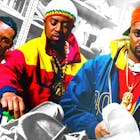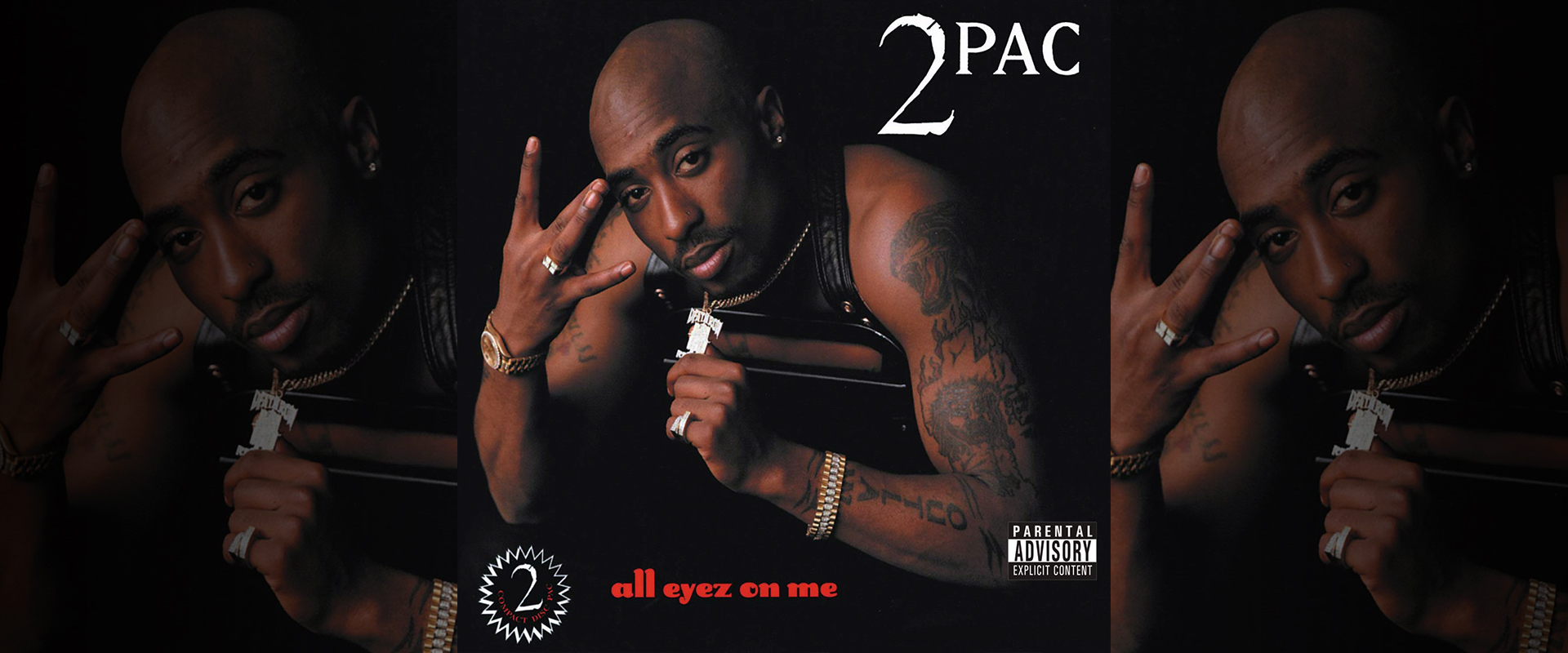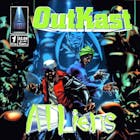
Classic Albums: 'The Score' by Fugees
Classic Albums: 'The Score' by Fugees
Published Fri, January 29, 2021 at 11:17 AM EST
In 1994, the debut album from a New Jersey trio calling themselves Fugees (aka the Refugees Camp) dropped without setting the world on fire, but made it clear that Wyclef, Lauryn and Pras may have bigger things on the horizon.
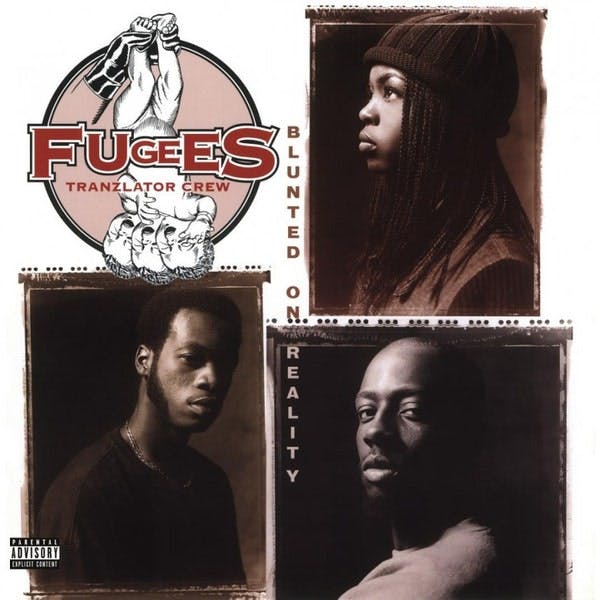
The album Blunted On Reality itself was lukewarm, but the singles (remixed for radio) proved to be a foundation on which the threesome could build their sound.
For their sophomore album, The Fugees expanded on the sound of those remixed singles ("Mona Lisa," "The Vocab") and producer Wyclef indulged in all of the soul, reggae, pop and R&B influences that shaped him. Lauryn Hill was the uber-talented lyricist and vocalist, and her talents as a singer would be pushed to the fore this time around. Lauryn had seemed like a star in the making after her appearance in the hit movie Sister Act 2: Back In the Habit in 1993, and following the tepid reception to Blunted On Reality, there was chatter that she should ditch "those other two guys."
“I don’t find it a compliment when people say that,” Hill told SPIN in 1996 about the early recommendations that she should've gone solo.
“These brothers are like members of my family. Families sing together and they blend. There’s something that we do together that makes perfect chemistry. It’s been perfect since I was 14 years old.”
The eclecticism. The talent. The drama. It all made for a heady mix that would soon take over the pop charts.
As Lauryn, Clef and Pras set about working on The Score, rap mag headlines were dominated by coverage of a supposed East Coast/West Coast Hip-Hop feud. More eyes were on rappers, more money was being made, and more violence was being threatened, and it was shifting the landscape. But in the midst of the toxicity of the Death Row/Bad Boy beef, and with more mainstream eyes on Hip-Hop than ever, the Fugees delivered a massive smash.
The Score isn't typically presented as a concept album, but it feels thematic largely because of the "Reds" intro and the other accompanying interludes: there's a live-on-the-block feel throughout the whole album. "How Many Mics" opens the album proper, and setting up the album so well with an ominous feel. An underappreciated facet of The Score is its subtle darkness, even if it's moreso applicable to feel than subject matter.
That's best epitomized on smash single "Ready Or Not." The late 1990s can come under consistent criticism for some of the blatant musical rehashing when it comes to the sampling and interpolating of popular hits from the 70s and 80s, but this was always a great showcase for Lauryn as a vocalist. Hill's singing was downplayed on the more overtly boom bap Blunted..., but throughout The Score, her voice is the trio's not-so-secret weapon. And songs like "Zealots" belied the group's ability to make radio-friendly music but hide all kinds of quasi-consciousness on the album. They were able to appeal to a wide variety of rap audiences because they could be hooky without being corny, R&B-flavored without sounding like they were pandering, and "conscious" without seeming preachy. "The Beast" is also clearly not at all for the radio. Their crossover success got them in households that would've never heard KRS or even A Tribe Called Quest.
DROP YOUR EMAIL
TO STAY IN THE KNOW
But it was the album's hit first single "Fu-Gee-La" that announced the Fugees as hitmakers.
Referencing Teena Marie in it's Lauryn-sung hook, the single dropped around Christmas of 1995, setting the stage for the album's runaway success. "Fu-Gee-La" shot to No. 29 on the Hot 100, giving the group their first taste of mainstream success. The video got constant airplay on MTV and BET, as suddenly the Fugees were a household name. The success of the single helped bring the album into focus.
"Going into ’95, I was working on music for Spike Lee’s Clockers," producer Salaam Remi told Pitchfork on the 20th anniversary of the album. "I had [the Fugees] come down [where I was working], and we did a song that was supposed to be onThe Score but never got on there, called ‘Project Heads.’ During the session for ‘Project Heads,’ which I was also trying to get into Clockers, there was a beat I had made for Fat Joe that Lauryn heard. She was like, ‘Look, where’s that Fat Joe beat?’ During that session, I played the beat on her request and Wyclef jumped up and pretty much spit his verse, ‘We used to be number ten, now we’re permanent one…’ What I did was—on my dime and my time—I recorded ‘Fu-Gee-La’ in my studio. That song was done, and then they went and got the budget for that second album."
The success of "Fu-Gee-La" was noteworthy; but it paled in comparison to what came after it.
"Honestly, I had not [heard of the Fugees prior to 'Killing Me Softly']," said Roberta Flack in 2016. "The Score came on us like a mighty wind, and I was totally blown away by the power of the group—their musicality, their political message, and their creativity."
The Fugees' Lauryn Hill-led version of "Killing Me Softly With His Song" is arguably on the short list of the best covers of all time; no small feat when you consider Roberta Flack's classic version had already been forever etched there. Lauryn's voice was the catapult that launched the Fugees onto the pop charts.
The group initially wanted to refashion "...Softly" into something more topical; a political song that was "anti-drugs and anti-poverty," according to Flack. But the original songwriters, Norman Gimbel and Charlie Fox, didn't want their lyrics altered. "I feel that the meaning of the song changes depending upon the singer, depending upon the listener. They gave the song a new meaning and exposed it to a new generation. They invented a new version of the song, using some musical ideas from my version. I was surprised they picked that song to be included with the others on that album, as it didn’t have the political emphasis, but then again it depends on the frame of reference from which you listen, right?"
"Killing Me Softly" became an international smash, reaching Number One in 20 countries.
That single was released two months after the album, and The Score was now one of the biggest albums of the year, and one of the most critically-acclaimed. Producer Diamond D helmed the title track, which samples a guitar progression on Cymande’s “Dove." “It turned out all real,” Diamond D, who also rapped on "The Score," said in 2020. “I am glad to be associated with that album.”
"Ready Or Not" was another platinum-selling single upon it's release in the fall of 1996, and its accompanying video was among the year's most acclaimed and popular. Album track and posse cut "Cowboys" featured then-newcomer Rah Digga, soon to become a breakout star in Busta Rhymes' Flipmode Squad.
"After we did the song, we didn’t think too much else about it," Digga told Pitchfork in 2016. "They told us they were shooting a video for it. When we did the video, I was four months pregnant and nobody knew. It still didn’t register that ['Cowboys'] was making the album, until one day I was in the car with Lauryn, and she’s playing the soon-to-be-released album and we’re on it! It was like, ‘Holy crap! Get out of here!’"
Final single "No Woman, No Cry" features Stephen Marley and further amplified the album and group's affinity for genre-blending. The Score is Hip-Hop, soul, pop and reggae all coexisting in a musical hodgepodge that belies the group's Haitian heritage and Jersey upbringing. And Wyclef always wore his music love on his sleeve.
But they bristled at the notion of being labeled "alternative."
“We are a hip-hop group, point blank,” said Hill in 1996. “‘Alternative’ is like saying ‘she’s attractive for a dark-skinned girl,’ a backhanded compliment. Just because we can play instruments, we can’t be real hip-hop? The reason I make the kind of music I make is to bring musicality back to the ghetto. It’s about being creative, and sometimes adding a motherfucker if it means getting my point across.”
The Score is the kind of album that makes one wish people still appreciated albums. Structured with a conceptual flair, where the closer is as important as the intro, it's an album that rewards turning off the auto-play feature when I listening on a streaming service and really dropping into the Fugees musical world. Lauryn really kills the closer "Manifest" and the song perfectly bookends an album.
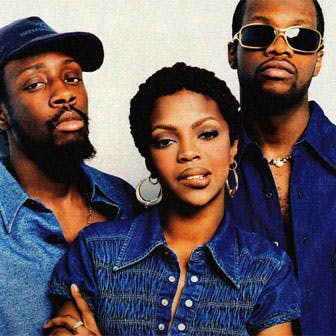
The tremendous success of The Score made it one of the landmark albums of its era. It sold more than 6 million copies, won Best Rap Album at the 1997 Grammy Awards, and famously launched the solo careers of group members Lauryn Hill, Pras, and Wyclef Jean. The trio would go on to tremendous successes after the Fugees dissolved acrimoniously in the months following the album's release. Strained personal relations and creative differences were blamed, but save for sporadic attempts at reunions over the past 25 years, the two albums recorded by the Fugees in the mid-1990s are the sum of their shared legacy as a unit.
No one knew it then, but—at least to date—The Score is the finale of their recording career. And that's crazy.
